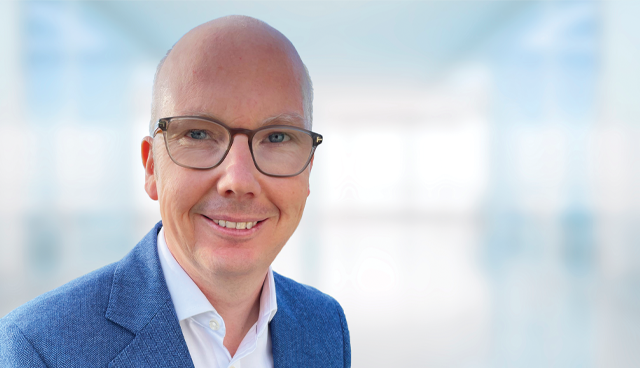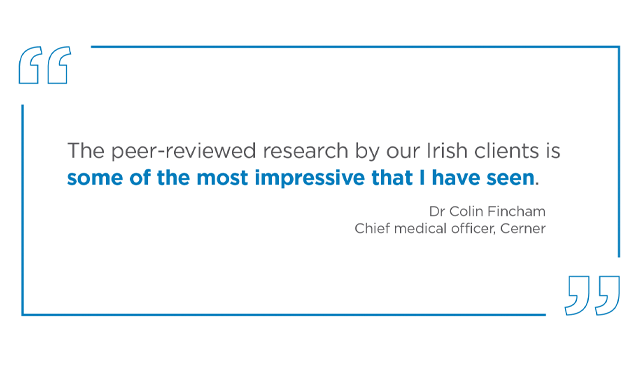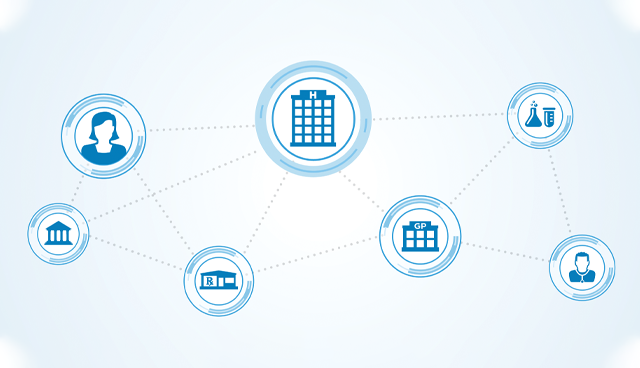Our response to Covid-19 is breaking down walls: let’s build something better, together

Great healthcare services require swift collaboration among many stakeholders. The crisis, and the devastating pressure it has put our healthcare workers and their patients under, has made enabling that collaboration a priority, writes David Clancy, Director and General Manager of Cerner Ireland.
Healthcare has been in a state of constant, incremental reform for as long as most of us can remember.
The need for a change in how we deliver services has long been universally accepted, although the definition of what ‘change’ should entail, and what areas should be prioritised, has not. This is not surprising given the breadth of stakeholder involvement: the more stakeholders that need to change, the slower that change will usually be.
But the pandemic doesn’t care about stakeholders, change management or healthcare reform. It doesn’t care about specialities or venues of care. Given the chance, it will impact all of us, everywhere, and now.
The impact of the crisis and its immediacy has enabled the healthcare system and those that manage it to remove many barriers to great healthcare that otherwise would still exist today. It’s also highlighted how quickly real progress can be made.
A change in expectations
In just a short period of time, we as healthcare consumers now expect our pharmacies to have our prescriptions ready, with neither the pharmacist nor the patient necessarily having to physically visit the GP. As parents, we expect to discuss our child’s X-ray results with her paediatrician virtually, avoiding on-street inner city parking and crowded waiting rooms. Both simple, safer processes, that were technically possible, but not enabled, before the Covid-19 crisis.
We also expect our hospital carers to have access to the tools, resources and information to keep both us and them as safe as possible. To that end, we’ve witnessed amazing achievements and collaboration. For example, in the UK, Middle East and U.S., digitally mature hospitals have enabled non-affiliated hospitals to use their proven electronic health records, clinical support tools and patient engagement tools in weeks and months, rather than months and years. Whole hospital networks, that otherwise may never have collaborated, have urgently come together to share epidemiological data, accelerating research and clinical trials, for the benefit of us all. Governance structures have been quickly established to enable change, rather than used as an excuse not to.

The great news is that the evidence shows we can make significant leaps, together and quickly, when we are enabled to do so.
Ireland’s evidence for sustainable change
Sláintecare, our national blueprint for healthcare reform, identifies technology as a key enabler of meaningful reform. Against the background of positive policy proclamations, there has also been an increase in appetite for our key enablers, our people, to get themselves ready and involved in technology-enabled change. There has been excellent work done at an institutional level to create digital academies, forums, knowledge-sharing frameworks and accredited professional courses in digital health and related disciplines.
Closer to the coalface, we’ve seen some great wins on a national departmental solution level (e.g. in radiology and patient administration), with delivery not only benefiting patients, but giving real-world experience to HSE, voluntary hospital and other staff. This experience surely played a key role in enabling the rapid deployment of virtual care, and the testing and resulting programmes, in response to Covid-19. This is something that all involved should be proud of.

We also now have a handful of truly digitally enabled hospitals in Ireland, where doctors, nurses, pharmacists, HSCPs and administrators have configured solutions to meet Irish healthcare standards. They have multiple international peer-reviewed publications and value statements on how this has led to increased time to care and increased patient safety. And they have created tomes of publicly available information on lessons learned for further rollouts. The foundations for quick, effective transformation are stronger now than they have ever.
A seamless and connected world, where everyone thrives
While Covid-19 will remain with us for the short-term, its direct and indirect impact on our healthcare system will be felt for a generation. Therefore, it must be considered both a political and social priority to not only build on what work has been done before, but also to accelerate and sustain it. Many of the stars are aligned in Ireland to make this happen.
For our part, Cerner’s focus in Ireland for 2021 and beyond will be in two key areas: delivering and sharing.
On the delivery front, we’ll be helping the HSE and hospitals make a success of our national laboratory and order communications programme, known as MedLIS. The potential benefit of a single national, shared laboratory record is immense, for patients and the multiple community and acute services that depend on accurate and timely pathology results.
We will support our oldest partners in Ireland, St James’s Hospital, as they enhance their digital footprint and focus on delivering additional capacity and benefits in the treatment of their patient population.
And not only is the Maternal and Newborn Clinical Management System (MN-CMS) helping to deliver 40 per cent of Ireland’s babies, the client team are also delivering world-class research regarding pregnancy and the treatment of mums and their infants. There is so much more that can be done there too.
For our other focus, I want us to do a better job of sharing the learnings from our Irish and global clients. We’ve had hospital systems from six different countries visit Cork and Dublin. In 2021, we’d like more Irish healthcare providers to see what our Irish clients have achieved to date and see what they themselves could leverage.
This year has proven we can achieve great things quickly; next year can be when we accelerate and embed technology enabled healthcare reform, together.
About David Clancy
David was an economist focusing on the impact of population aging, before moving into the connected health space as a management consultant. Before joining Cerner in 2015, he worked in healthcare start-ups and for Change Healthcare. He lives near Glendalough in County Wicklow, with Mairead and their three girls.
About Cerner in Ireland
Cerner believes in building positive, long-term partnerships that drive value across the health and care landscape. Our intelligent platforms and services connect people, information and care at 27,000+ facilities of all sizes worldwide and help manage the health of 110 million citizens across the globe.
We’ve been in Ireland since 2004, growing from a European global support hub into a centre for research and development and local client delivery office. Over 8,000 Irish healthcare professionals have used Cerner’s solutions in the past year.
W: www.cerner.ie
Twitter: @CernerIRL






